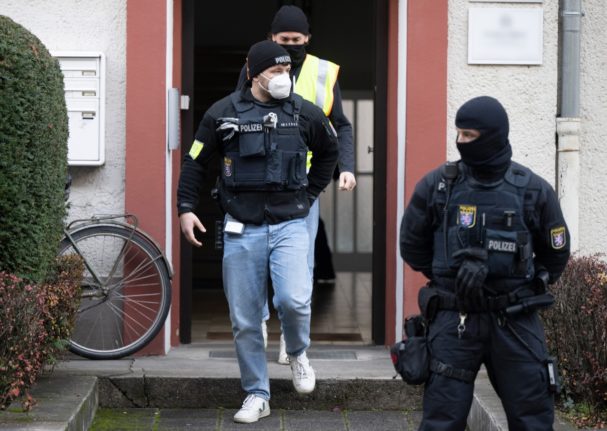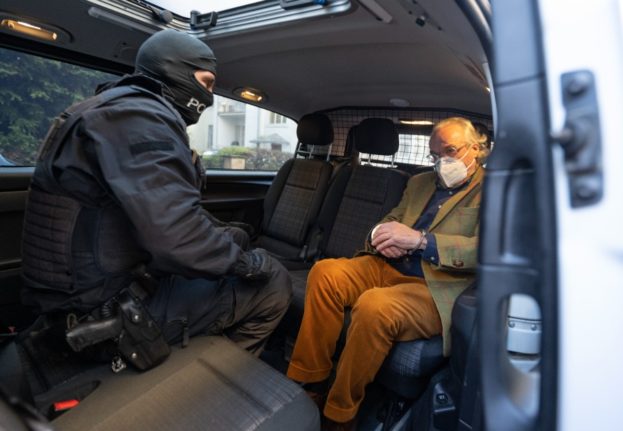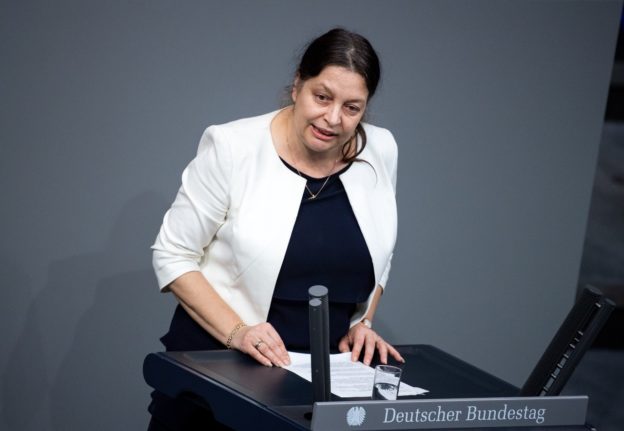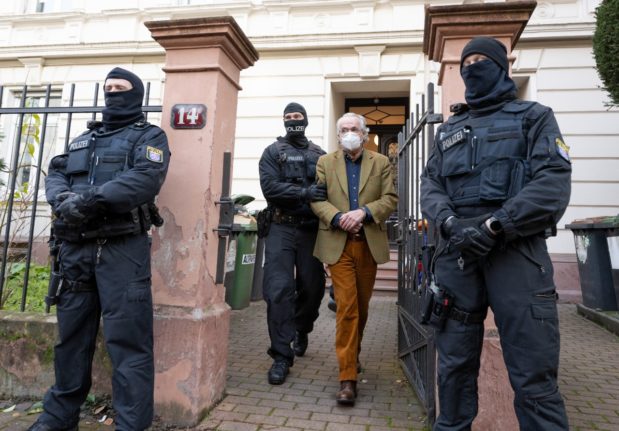On Wednesday, the shocking news emerged that police had arrested 25 people in connection with a suspected plot to overthrow the German government.
Those arrested are accused of having formed “a terrorist group by the end of November 2021 at the latest, which had set itself the goal of overcoming the existing state order in Germany and replacing it with their own kind of state”, prosecutors said in a statement.
They added that the suspects had allegedly planned to storm parliament with a small group of armed militants and take control of the government by force. But who exactly are the accused?
Well, if this all sounds like something out of a dystopian novel, there are a few characters you need to know about.
Here’s a rundown of who they are.
The Reichsbürger movement

Known as far-right extremists who hanker after a bygone era, the Reichsbürger movement is nothing new in Germany – though its members have become increasingly volatile in recent years.
Since the 1980s, the group has been a ramshackle coalition of neo-Nazis, gun enthusiasts and conspiracy theorists who ultimately question the legitimacy of the Federal Republic of Germany and refuse to follow its laws. Instead, these so-called Reichbürger (citizens of the empire) tend to believe in the continued existence of the Third Reich and often claim that modern-day Germany has become nothing more than an American vassal state in the post-war order.
Though this kind of thought has been on the fringes of German society for decades, the Reichbürger have recently been amassing support and appear to have been emboldened by the rise of other far-right groups. Its estimated number of followers has doubled from 10,000 to 20,000 since 2017 alone, with around 2,000 deemed to be potentially violent. Indeed, recent years have seen increasingly brutal clashes between members of the group and the German authorities.
One such incident in 2014 saw a former Mr. Germany beauty pageant winner open fire on the police when they tried to evict him from his property as a result of unpaid debts. Another incident led to the death of a police officer, who was shot in Bavaria while trying to confiscate firearms from a radicalised follower of the group.
Alongside the alleged plot to overthrow the German government, other acts of terrorism have also been pinned on the group – or those associated with them. Most recently, they include a suspected plot to kidnap Health Minister Karl Lauterbach (SPD), along with planned attacks on asylum seekers, Jewish people and other minorities.
READ ALSO: What is Germany’s extremist Reichsbürger movement?
Heinrich XIII, Prince of Preuss

The 71-year-old “prince“, arrested in Frankfurt’s West End on Wednesday morning, has been described as the ringleader of the group. He pictured himself as head of the new revolutionary government if the envisioned coup went according to plan.
A descent of the the House of Reuß that ruled parts of Thuringia for about 800 years, family members had distanced themselves from him due to his outspoken far-right conspiracy theories.
In a notorious speech given at a business summit in Zurich in 2019, Heinrich XIII had referenced the antisemitic conspiracy theory that the 20th century world order had been engineered by the Rothschild dynasty and the freemasons. He also complained that his own dynasty had been “disposessed” after the first world war.
“Ever since Germany surrendered, it has never been sovereign again,” he told listeners. “It has only been made an administrative structure of the allies.”
Rüdiger von Pescatore
Described by prosecutors as the terrorist group’s military arm, Von Pescatore was a paratrooper commander and then part of the Special Forces Command between 1993 and 1996.
He was allegedly dismissed from the military in disgrace after selling former East German weapons which had fallen out of use.
According to reports in The Guardian, an internet user bearing the name Von Pescatore made comments on a website claiming to expose the influence of the Freemasons on major world events back in 2019. The commenter allegedly claimed that the “truth” would be exposed once the current “system” had been brought down.
Birgit Malsack-Winkemann

The lawyer-by-training had been a member of the far-right Alternative for Germany ever since it was founded in 2013 as a party against the Euro currency.
A member of Bundestag between 2017 and 2021, she grew increasingly vocal against immigration and espoused conspiracy theories from the extremist group QANon.
Until recently, she had been working as a district judge in a Berlin court. In October, members of the left-wing Linke party launched an unsuccessful attempt to oust her from her role due to her inflammatory comments about migrants and refugees.
She is believed to own at least two firearms.
Who else is believed to be involved?
So far, prosecutors have mentioned a number of others who could have been involved in the alleged plot. One is a Russian woman called Vitalia B., who is accused of having tried to facilitate contact between the plotters and the Russian government in order to discuss a “new political order” in Germany.
Former soldiers are also believed to be among the members of the terror group, and they are also thought to have tried to recruit members of the police force. Other people arrested include a roofer from the Covid-sceptic ‘Querdenker’ movement, a pilot with a German airline, a doctor, a high-end chef and an opera singer who could have been installed as culture minister following the takeover.
In addition to 23 arrests in Germany on Wednesday, two people were arrested in Austria and Italy. Prosecutors say they have identified a further 27 people in connection with the plot, so expect more details to emerge soon.
READ ALSO: Germany busts far-right cell planning attack on parliament




 Please whitelist us to continue reading.
Please whitelist us to continue reading.
Member comments